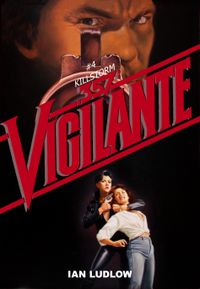I've been engaged in a discussion about the pros and cons of self-publishing over at The Kindle Boards and thought I'd share some of my comments here. One person wrote a message talking about the reasons he self-published with a POD press. One reason he did it, he said, was because publishing companies are turning their backs on literary fiction. He said, in part:
Literary novels are a very tough sell to publishing houses. They want the sales of "Water for Elephants" or "The Time Traveler's Wife," but they, like movie studios, can't tell which books will do it. All they know is that they cannot publish many literary novels anymore. Thus, those of us interested in writing literary books as opposed to genre books have to find new paths. My agent at XYZ in New York received dozens of positive rejections on my latest manuscript, for instance. Many editors told him that my novel had them laughing–it was a fun read–but they didn't know how to market it if they were to publish my book. Thus, I'm trying to assist my agent by creating a platform independently.
That struck me as a lot of rationalizing….and not a lot of fact. There are a lot of literary novels published every day, some do well, some don't. There's a lot of "commercial fiction" published every day, some do well, some don't. Publishers never know which books will sell, and which won't. His comment about WATER FOR ELEPHANTS and TIME TRAVELERS WIFE assumes the publisher knew for certain they would sell. They didn't. No more than they knew GARGOYLE would flop (they thought it would be huge). So that rationalization doesn't hold…not that it was honestly credible to start with.
Real publishers are still publishing literary novels. They just aren't publishing his. That's blunt, I know, but that's the truth. the rationalizations may make him feel better about it, but the bottom line is the bottom line.
The market for ALL books, not just literary novels, has narrowed (the same is true for movies and tv shows, another field in which I toil). But good books will still get published. For example, my brother Tod's collection of very literary short stories, OTHER RESORT CITIES, was just published this week and he's on a national book tour financed by his publisher at this very moment. If nobody is buying literary novels, imagine how small the market is for collections of literary short stories…and yet, he's on a book tour. What does that tell you?
The commentor mentions that his book got "dozens of positive rejections." I'm sorry, but a positive rejection is nothing but a polite "we are not interested." They don't want your book. Period. If they can't market your book, that is a serious problem. And it's code for lots of things…bad writing, poor plotting, unsympathetic characters, cliches, boring prose, whatever. But what they are saying is, they don't think your book is publishable or something they can publicize effectively. And if a major publisher can't market it, the odds of you having any better luck with a self-published POD edition that few, if any, bookstores will stock and that few, if any, reputable reviewers will review, and that will have limited distribution, at best, is even slimmer. Yes, the publishing business is changing, but we are a long, long way off from POD self-publishing being the way to success or a wide readership…if ever. (Yes, there will be one or two exceptions….but that's exactly what they are, exceedingly rare exceptions).
I am not saying this from some exulted position — I may be a published author of dozens of books, but I also have had books rejected that are sitting in my drawer right now. Yes, I got "positive rejections," but I am honest enough to know what that really means….the books are unsaleable. In some cases, after a time, I've gone back and looked at those manuscripts and realized the editors were right…and saw the flaws I couldn't see before…and am thankful I wasn't foolish enough to invest money in self-publishing them anyway in the hope of being "creating a platform."
Someone else wrote that he considers himself a published author even though he selling his work as "self-published" e-books:
Frankly, even with my 1-2 sales a day, I consider myself a published author. I put a hell of a lot of work into my book, and even though only a handful of people will ever see it, I'm proud of it. And yes, I'm asking 99 cents for it, since having people actually pay money, even pocket change, gives me a little ego boost that gives me a warm fuzzy feeling.
I wrote that he may consider himself a published author — I may consider myself the sexiest man alive — but that doesn't make it so. He's not a published author. He's a guy who has printed his own manuscript (or put it in ebook format). There's a big difference between him and somebody who actually is a published author. In his heart of hearts, he knows that, too…or he wouldn't be striving to become one.
Someone else argued that self-published, POD novels are every bit as good, if not better, than what is coming from the real publishers. She wrote, in part:
Without a doubt, some of the best novels I've read this year are from independent authors. I'm sure these authors had good editors working with them. Beyond that, I don't think they had a lot of marketing behind them; I came across these novels through the threads here and from e-book blog postings. I think with good, cheap viral marketing a completely independent author with a good story and good editing can make a decent living right now, and things are just going to get better for them.
"Independent authors?" Is that the aspirational, PC term for self-published authors now? (The equivalent, I suppose, of aspiring writers who insist on calling themselves "pre-published"). Sorry, I'm not buying in.
Yes, publishing is in flux, but so far the only people making money off self-publishing are the vanity presses and POD houses. The paradigms aren't changing as fast as the self-published would like to believe they are, or in the ways they would like them to.
Ebooks make up a very, very small percentage of overall book sales…the POD sales barely even register (the vast majority of POD fiction titles are sold to the authors and their narrow circle of families and friends). I would be interested to know how many POD authors are making a "decent living" off their work…and how much money they consider "a decent living" to be. How many of these POD authors, for instance, are making even $10,000 off their books (after recouping what they spent on printing, formating, etc.). Very, very few.
I don't believe things are going to get better for POD authors…if anything, I believe the narrowing of the publishing industry is going to make it even harder for self-published writers to get noticed…or accepted…by an ever-shrinking reading audience. One problem is that most of the self-published stuff is unmitigated crap. I'm sure there's some good stuff to read among self-published works…but that has not been my experience, or the experience of "typical readers" i know who've sampled self-published work.
Another commenter accused me of being "anti-writer" by attacking vanity presses. He wrote, in part:
Lee, I could understand your attitude if you were a president of a publishing company, but I'm surprised you're so hot-and-bothered against other writers.
I am not against writers — far from it. I encourage writers to never give up and to continue honing their craft. That doesn't mean flushing your money down the toilet, and harming your career, by self-publishing your work. What it DOES mean is that you need to learn to accept that some of your stuff might be clumsy, amateurish, unpublishable or utter crap…and to learn from it and move on. It means learning how the business works, what the professional standards are, and accepting the reality that there are no shortcuts to publishing success.
I am trying to warn writers away from the vanity press vultures who prey on the desperation and gullibility of aspiring authors by conning them with lies and false hope. And I am trying to stop unpublished novelist from making an expensive and embarrassing mistake that, in most cases, will do them far more harm than good.
Finally, a self-published author disagreed with my view that you should stick your rejected manuscripts in a drawer and move on. She wrote, in part:
It's also, quite simply, a way to have your book read. Why else write? Certainly not to stick your novel in a drawer. Writers write so readers can read.
Maybe so, but not all books are worth reading…or ready to be read. It's ultimately harmful for writers to publish stuff that isn't ready for primetime, so-to-speak. You only get one chance to make a first impression, and you don't want to do it with a book that's not very good simply because you want to see it in print.
Bottom line, I believe that self-publishing your unpublished novel is, 9.9 times out of 10, a costly and humiliating mistake. You will not make back your money and you will likely do more damage than good to your career. The odds of actually becoming an acclaimed, respected, and widely read professional writer by self-publishing your rejected manuscript is about the same as finding buried treasure in your backyard.
I am not saying you should give up being a writer if you are met with constant rejection. What I am saying is that you will be far better off — creatively, financially, and professionally — if you put your rejected manuscript in a drawer and write another book instead self-publishing it.
I am not saying that every book that's rejected by publishers and agents is a steaming pile of crap. However, you might want to honestly ask yourself why your book is being rejected…is it really because NY agents & publishers are old-fashioned, narrow-minded, bean-counting, creative cowards…or you don't know the right people or the secret passwords…or the system is geared to make money and not art… or the system isn't able accept something as brilliant and original as your work….or that nobody in the mainstream can appreciate your brilliance?
Or could it be that maybe its your work that is flawed in some way…or that you just don't have the talent, skill, or voice yet to make it as a writer? It's hard to accept that possibility, but rather than self-publishing what may be a substandard book…you might be better off trying to see the manuscript the way others have and learning from the experience…perhaps rewriting it, setting it aside, or going back and learning more about your craft.



